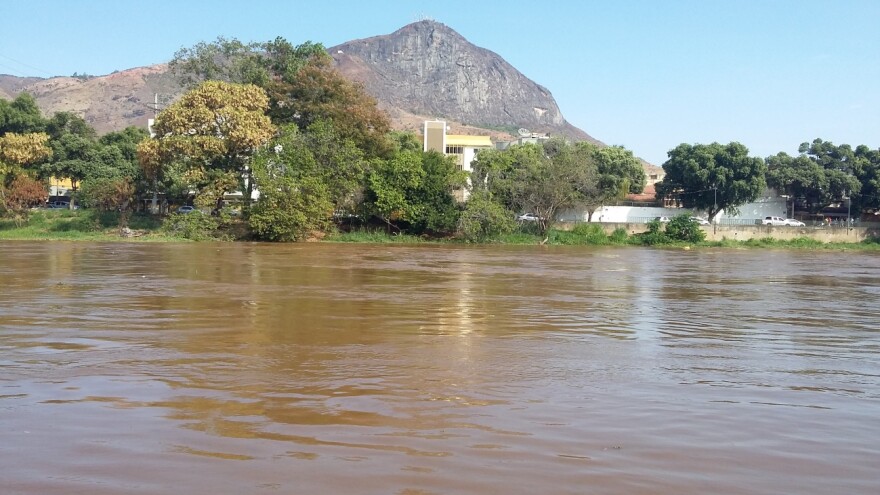The failure of two mining dams in southeastern Brazil earlier this month killed around a dozen people and left hundreds displaced. It's also created major environmental and humanitarian fallout in the country, which is being watched by people in Connecticut who hail from this region of Brazil.
Emanuela Leaf said she couldn't believe what she was seeing when the first photos of the dam burst came in online. "I was just heartbroken," she said.
Leaf is with the Latino and Puerto Rican Affairs Commission. She was talking about the failure of two mining dams in Brazil. Those dams held back large volumes of mud-like mineral waste from nearby mines, orange-colored sludge that's now flowing down the Doce River, and contaminating it with metals like aluminum, arsenic, and iron.
"People are thirsty and they need water," said Leaf. "It's just so incredible to say this when in relationship to Brazil, which is such a rich county in natural resources."
Leaf said government efforts to address the fallout from the disaster have been met with skepticism from many Brazilians. Here in Connecticut, Leaf said nearly 70 percent of the members of the state's Brazilian immigrant community hail from the region impacted by the dam bursts, especially Brazilian communities concentrated in and around Danbury, Bridgeport, and Waterbury.
"I have a lot of friends and family here in Danbury, Connecticut, whose family members were really impacted by this there," Lead said. "I, personally, am going down there for the holidays to spend time with my Grandma and I know it will be a shock to me as I'm flying in, to see the river in the conditions that have been described."
This week, sludge from the contaminated river began pouring into the Atlantic Ocean. According to the BBC, it's already traveled more than 300 miles downstream.
Leaf said GoFundMe pages are starting to pop up to send aid, especially bottled water, to Brazil.




